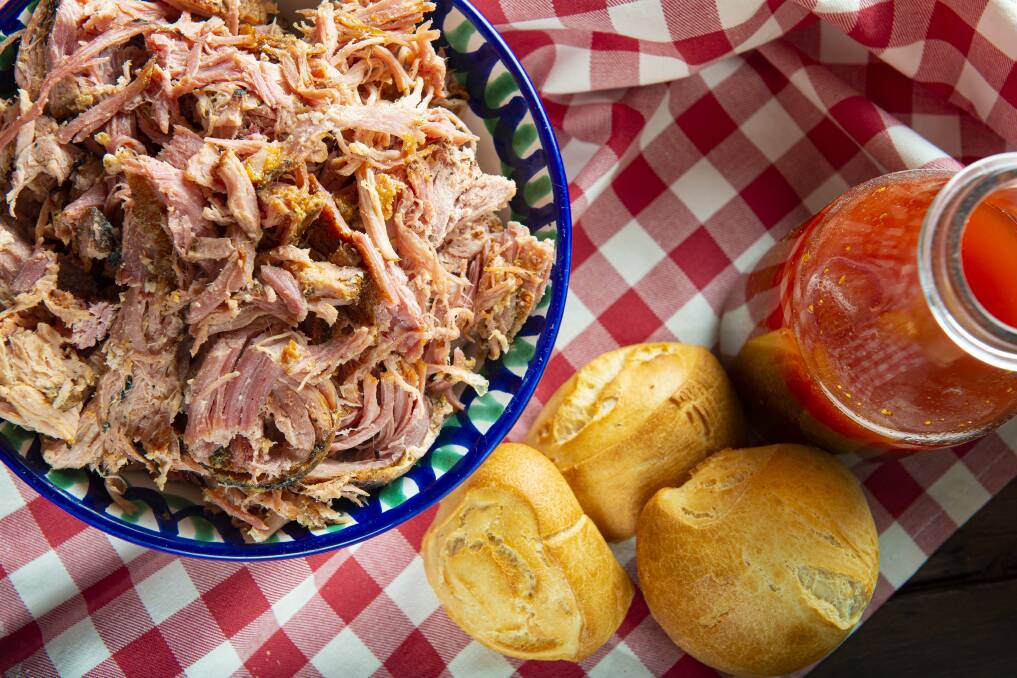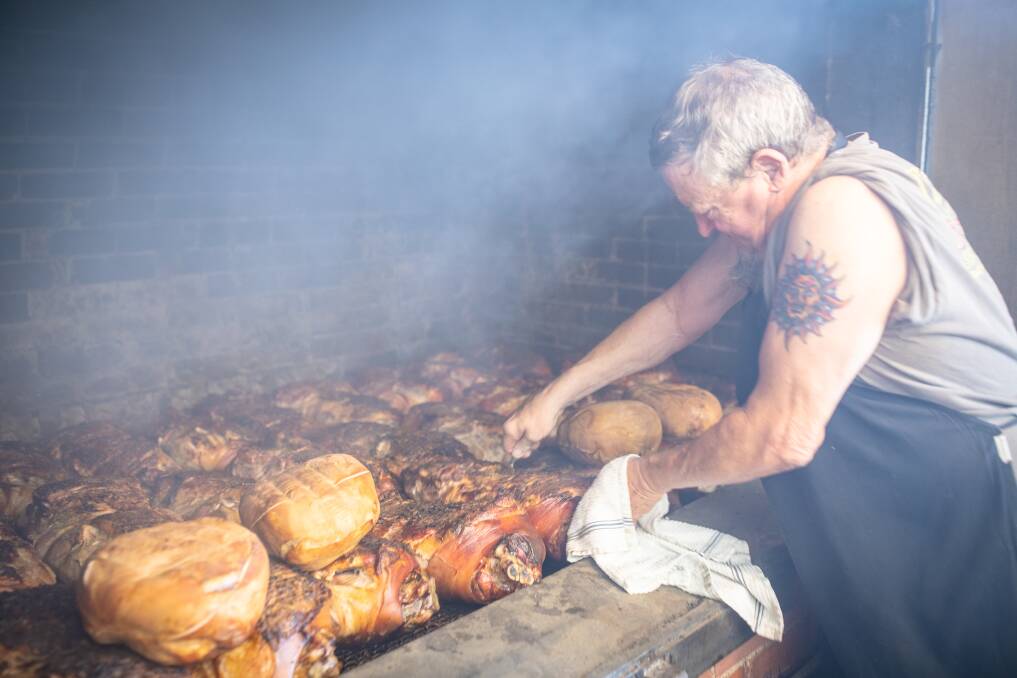Deep in the bible belt, barbecue is enjoyed with a religious fervour.
Create a free account to read this article
or signup to continue reading
Across the US, few subjects are as sure to bring people together - or inspire arguments - as barbecue. Whether you're talking thick slabs of fatty Texas brisket, crunchy burnt ends slathered in sweet Kansas City-style sauce or dry-rubbed Memphis ribs, barbecue is a broad church. But according to Sam Jones, there's only one true gospel.

"Barbecue is defined in this country by what patch of dirt you're on," he explains in a thick southern drawl that elongates the vowels and elides consonants seemingly at random. "In North Carolina, that means a whole hog slow-cooked over wood or coals - cooking brisket here is like being a Protestant in Italy."
Jones learned his trade at Ayden's Skylight Inn, an establishment started by his grandfather in 1947 on the state's eastern plains. When National Geographic repeated his unlikely claim that it was "the barbecue capital of the world", the venue sprouted a four-tiered aluminium replica of the Capitol dome that still stands today.
Behind the main building is a smokehouse nicknamed "the vestibule of hell", where beads of fat explode with a hiss on beds of glowing coals and release thick clouds of aromatic smoke. Each hog bathes in this perfumed haze for 16 hours before it's ready and, as I walk through, a staff member proudly tells me that "our wood tastes better than most people's barbecue".
In the kitchen, two cleavers dance through the air as he coarsely chops the cooked pork on a butcher's block that is visibly concave from years of use. Lean muscle and glistening belly fat are combined in a giant mound flecked with blistered shards of skin, and the whole mixture is liberally seasoned with salt, pepper and cider vinegar.

The menu at Skylight is strikingly simple. You can order chopped pork with sides of slaw, beans or cornbread, and because the current manager is the local Baptist preacher (who also happens to be Jones' father), there's no booze and it's closed on Sundays. So when Jones opened his own outfit with a liquor licence in 2015, the pushback was inevitable. "My daddy wouldn't even come to my shop when it first opened because I sold beer," he recalls when I visit him at the second Sam Jones BBQ location in the state capital of Raleigh (rhymes with "barley"), but a steady stream of customers proves that not everyone is so resistant to change. And thankfully, the slow-roasted hogs are treated with the same reverence.
On the plate, the pork is undeniably smoky with a hit of acidity from the vinegary seasoning. And though there's the option of adding more sauce, Jones suggests letting the 'cue speak for itself. "I could eat that damn napkin if you put enough sauce on it," he says with a grin, "but you don't want to mask the flavour of an animal cooked over wood; you want to taste the pig."
Wherever you are, it's something that forces you to slow down and appreciate life.
In Jones' company, it's easy to believe in a single tradition that encompasses all of North Carolina, from the coastal dunes where the Wright brothers tested their first planes all the way to the foothills of the Appalachians.
But I find a very different story just 90 minutes to the west. Lexington's city hall is built over a former barbecue stand, and half a dozen barbecue joints serve the eponymous style to just under 20,000 residents. The annual barbecue festival attracts up to 10 times that number. Where easterners use "every part of the pig but the squeal", Lexington-style barbecue takes only the shoulder and is served with a thin tomato-based sauce. True believers like Barbecue Center owner Michael Conrad insist it must still be cooked over wood for eight hours, but he can't resist a quick sales pitch. "We flip the shoulders just before they're finished to help drain the fat off, then we pick out as much fat as we can when we break it down, so it's a healthier version of barbecue."
Once chopped, the meat is seasoned with salt and pepper then served with a tangy mixture of ketchup, vinegar, salt and several types of pepper known as dip. "If you're from Lexington there are a few extra 'i's in there, so it's pronounced diy-up," Conrad says with a chuckle, adding that despite the name this bright red liquid is designed to be poured over the pork. Rather than sitting on top, this allows the dip to permeate the meat and infuse it with a rich flavour, and while I'm not ready to echo his health food claims I soon find myself asking for a refill.
Read more on Explore:
Hitting the road once more, I head west until the thickly wooded slopes of the Smoky Mountains rise around rapidly gentrifying Asheville. A kale Caesar salad made with greens from chef Nick Barr's farm hints at Buxton Hall's less than traditional approach, and Barr admits that Eastern-style barbecue is "our inspiration rather than our dogma." His hogs are dry aged for two weeks in a mixture of salt, sugar and red pepper flakes before they're smoked, and the serve yourself sauce station caters to barbecue's many adherents.
A peppery eastern Carolina vinegar cuts through the fat, while a sweeter, thicker option is a gesture to visitors arriving from the west. There's even a golden South Carolina sauce that uses mustard as a base, "but that's a whole other story," says Barr with a faint smile that suggests he's witnessed many debates over their various merits.
"The exact definition of barbecue changes every 10 miles and everyone thinks their style is the best, but the basics are the same: traditional barbecue is always wood-fired and it is inherently an event to gather folks. Wherever you are, it's something that forces you to slow down and appreciate life, and I think that's something we could all use a little more of."
TRIP NOTES
Getting there: Qantas and American Airlines fly to Charlotte Douglas Airport from Melbourne, Sydney and Brisbane via Los Angeles, San Francisco and Dallas.
Getting around: You'll need a car to explore North Carolina's best barbecue joints and Alamo has rental vehicles starting at $50 a day. alamo.com
Staying there: Raleigh's Longleaf Hotel is a charmingly refurbished motel on the edge of downtown with doubles starting at $249 per night. thelongleafhotel.com
The writer travelled with assistance from Brand USA and Visit North Carolina.




